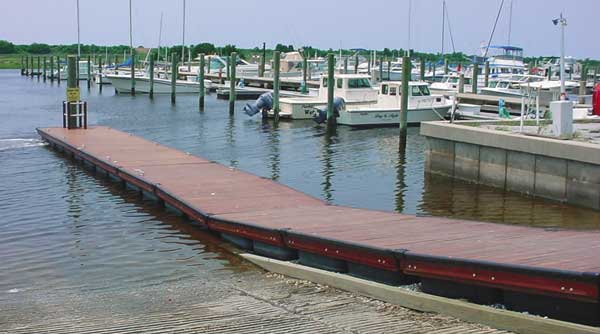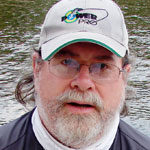
I don’t know how many readers will remember the old TV commercial about automobile safety that said: “You could be right; you could be dead right.” I first saw it as a child; I’ve never forgotten it.
That commercial was specifically aimed at teaching defensive driving (a driving technique that North Carolina high school Driver’s Ed teachers used to preach). However, I’ve found the general premise to be useful in many facets of life.
Sometimes being right just isn’t enough.
It can vary from forging ahead in a business agreement that, while legal, isn’t ethically right to using a questionable tactic to win a game or argument. As one of my friends, Richard Denning, is fond of saying regarding these situations: “That just ain’t right.”
Nearly all of us have seen the “I’m-entitled-and-the-heck-with-you-and-the-horse-you-rode-in-on” attitude in fishing. One of the most common examples is a trout fisherman who motors into the middle of a group of anglers who already are in position at the perimeter of a trout hole. He’ll noisily throws his anchor over the side to position his boat where it blocks everyone but him from fishing.
That fisherman has every right to fish at the trout hole — as long as it’s in public water. But he shouldn’t go about it that way. In fact, he probably just messed up the fishing for everyone, including himself.
I specifically used this example as most of us have seen something similar at one time or another. Everyone except the offending new arrival would be upset and rightfully so.
I’ve seen this situation escalate to strong words and promises to meet back at the ramp for several rounds of hands-on etiquette lessons.
To quote Richard again, “That just ain’t right.”
However, in this example, there wasn’t a safety issue, unless you consider the safety of the offender once back on land. But there were bad feelings a little bit of old-fashioned courtesy could have prevented.
But what if a safety issue also is involved?
Perhaps you’ve been boating or fishing during the fall when the spot run starts, and the “spot yachts” congregate in huge numbers at coastal rivers and the Intracoastal Waterway.
One of the primary rules of the road for maritime navigation is a boater may not impede the progress of any vessel that’s restricted by draft to the confines of a channel.
Typically there are several locations, such as the ICW near the Emerald Isle-Cape Carteret Bridge and the near Lockwoods Folly Inlet, where the Coast Guard occasionally is called to move anchored spot-fishing boats from the channel to allow larger boats to pass.
When this happens, it’s a safety issue, not a matter of courtesy.
If you’re wondering where I am headed, I want to discuss fishing at marinas.
Many marinas become pretty good fishing holes during certain times of the year. The reasons may vary from water temperatures to lots of baitfish. The bottom line is some marinas can be really good fish magnets.
I’m not going to analyze why some marinas hold fish but instead let’s look at the rights, privileges and responsibilities of boating anglers who fish at them.
Many fishermen living near me know about several of the marinas I will discuss, but I’m not going to mention these boatyards by name. Just know they’re not particularly large but tend to hold red drum and speckled seatrout.
And that means some problems have cropped up because of anglers fishing at these marinas.
The first issue when on a boat is — and always should be — safety. Remember the “being right and being dead right” comment at the beginning of this column?
I spoke briefly to a lawyer who said because the water that fills a marina must come from a public waterway (river, creek, Intracoastal Waterway, etc.) the water at the marina is public. However, the docks, bulkheads and other items there are the property of the marina.
The only debate concerns who owns the bottom.
Accepting the lawyer’s analysis as fact — and I believe it to be arguably true — anyone should have the right to fish at a marina as long as he or she isn’t tied to one of the docks or bulkheads. Anchoring to anything solid that’s attached to land is a bit more of a “rights” question
But it may hinder safety — and that’s the point.
Remember the earlier statement concerning maritime Rules of the Road that noted no one or his vessel may impede the progress of a vessel constrained by depth to a channel?
At a marina, everything could be considered channel, except the docking slips. Any boat not able to freely and immediately move out of the way of another boat could be considered impeding the progress of a vessel motoring to a slip or a fuel dock.
Anchoring that impedes progress would be as inconsiderate as a trout angler anchoring to hog a good fishing hole. At a marina, similar conduct also could constitute a safety issue.
Boats also don’t maneuver like cars, for the most part, especially in tight quarters. The choices are forward, neutral and reverse, and boats, except for large ones with docking thrusters, steer from the stern. Boats also don’t have “park” as a gear selection — or parking brakes. When in neutral and not secured with lines fore and aft, boats will drift with wind and current.
What does this mean relative to the discussion? In a nutshell, the operator of a vessel constrained to a small channel, such as between the rows of slips in a marina, can’t just sit and wait for a fisherman to land a fish then pull his anchor before moving out of the way. The boat will be drifting, as influenced by wind and any tide or current movement. Prop thrust from other boats also quickly can shift a boat’s position and attitude.
Wind drift is even more significant with larger vessels.
A small center-console, bay boat, skiff or john boat sits with a low profile to the water and is often shielded from the wind by docks, bulkheads and even larger boats. However, a larger vessel, especially with a taller profile, is up above these wind blockers and will drift with a wind that never affects a smaller boat.
This is where courtesy, safety and responsibility merge.
First, exercising proper courtesy wouldn’t cause someone to block a narrow channel. They wouldn’t even partially infringe upon the channel without the ability to quickly and immediately move out of the way. Secondly, there’s a legal responsibility. While it may be perfectly legal to fish at a marina that’s got all sorts of moving boat traffic, anglers also have a legal responsibility not to impede those using the channel.
Damage and possibly even personal injury could result from such inconsideration.
The same lawyer who said fishermen had a right to fish in the marina also said they shouldn’t block the channels. He said an angler could be charged with causing an accident because he was blocking a channel for another vessel.
Liability could occur whether a vessel struck the angler’s boat or another boat tied at a slip. If a crew member of either vessel — or a bystander — happened to get injured while trying to prevent bumping boats, legal ramifications expand exponentially (lawsuits for damages, loss of income, inability to work, partial or permanent disability, even death).
However, common courtesy to fellow boat owners and operators should allow anglers and marina boaters to enjoy their activities peacefully and without conflict.
It’s the first responsibility of anglers at marinas to stay out of the way and be prepared to move immediately and quickly without being asked.
It also could make the difference between being welcome or grudgingly tolerated at marinas.




Be the first to comment